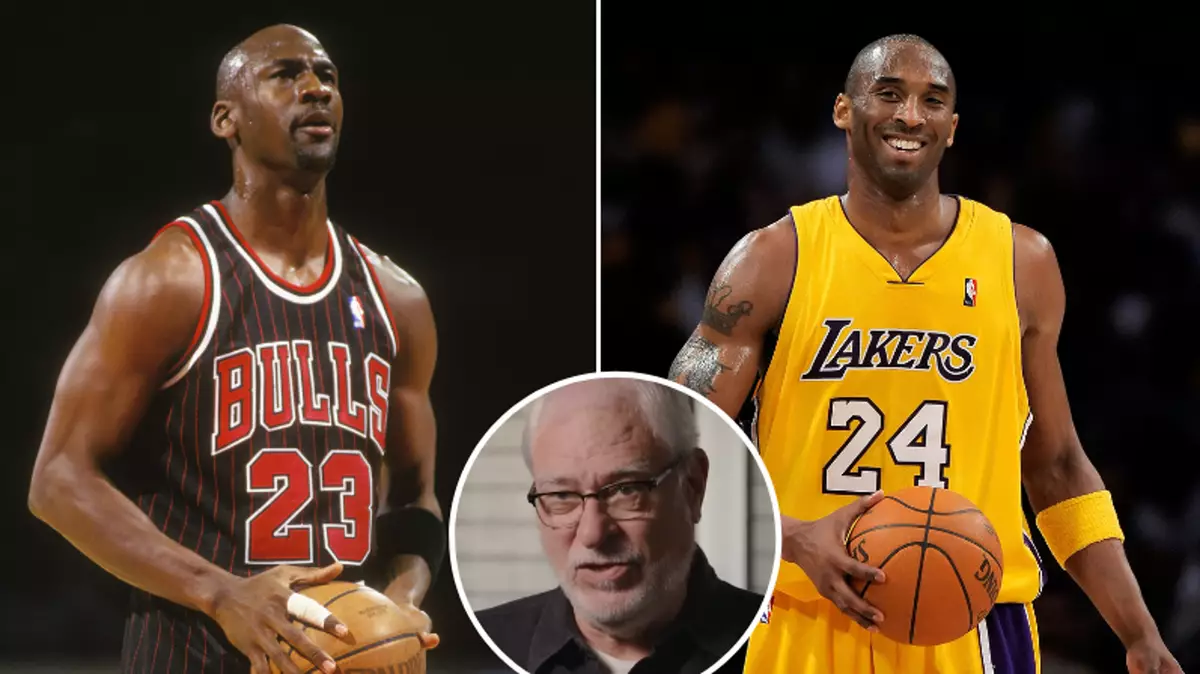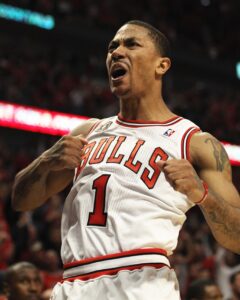
The NBA world is still haunted by the loss of Kobe Bryant, one of the most talented and fierce competitors to ever set foot on the hardwood. Even in death, Kobe continues to be compared to the greatest in the sport—most notably, Michael Jordan. Legendary NBA coach Phil Jackson, who had the privilege of coaching both MJ and Kobe, has never shied away from addressing the ongoing debates surrounding the two players. Jackson’s perspective brings fresh insight into how these legends shaped the game in ways unique to their personal styles, leaving fans divided yet captivated by their greatness.
While it’s impossible to escape the comparisons between Michael Jordan and Kobe Bryant, Jackson often stresses the stark differences between the two players, beyond the obvious similarities in playing positions and their almost identical styles of play. According to Jackson, these differences are what made each player’s legacy distinct, yet incomparable.
1. The Mental Approach: The Ruthlessness of Jordan vs. the Obsessiveness of Kobe
One of the most controversial claims that Jackson has made concerns their mentalities. Michael Jordan’s ruthless, often cutthroat attitude towards competition is legendary. Jordan didn’t just want to win—he wanted to crush his opponents to the point of psychological defeat. His “win-at-all-costs” mindset created a fearsome aura around him, and he was able to dominate his era like no other player. Phil Jackson recounts Jordan’s ability to impose his will on teammates and rivals, turning every challenge into an opportunity for personal glory and, ultimately, team victory.
Kobe, on the other hand, was obsessed with perfecting the craft. His relentless work ethic bordered on the maniacal, and he famously studied Jordan’s every move, seeking to replicate and even surpass his idol. But, as Jackson points out, Kobe’s obsession with detail and technique wasn’t always about overwhelming others but more about mastering the art of basketball. Kobe’s intensity often led him to push himself and his teammates to extremes, which could create friction but also elevated the performance of everyone around him.
Controversy:While Jordan’s relentless need to dominate was seen as a leadership strength, Kobe’s demanding nature was often viewed as divisive. This raises the question—does true greatness require a touch of cruelty, or can obsession alone carve out a legacy?
2. Leadership Styles: Jordan’s Singular Focus vs. Kobe’s Evolution
Phil Jackson has frequently commented on the leadership styles of both players. Michael Jordan was unquestionably the leader of the Bulls during his time, commanding respect with his achievements and his unflinching competitive edge. However, Jackson notes that Jordan’s leadership wasn’t always inclusive. Jordan led by example, but his approach was often dictatorial. He expected the best and didn’t mind tearing down his teammates to get there, famously clashing with players like Scottie Pippen and Horace Grant.
Kobe Bryant, in contrast, evolved into a leader who, while tough on his teammates, took a more strategic and personal approach as he aged. Early in his career, Kobe was known for his isolationist tendencies and demanding nature, but as he matured, especially in the post-Shaq era, Bryant developed a greater ability to connect with his teammates, drawing from his obsessive study of the game and the philosophy of Jackson’s triangle offense.
Controversy: Could Kobe’s adaptability in leadership be what ultimately sets him apart from Jordan? While MJ’s leadership style delivered rings, it left him with a reputation of being unyielding and harsh. Kobe, meanwhile, demonstrated growth, which begs the question—can adaptability in leadership surpass sheer dominance?
3. Legacy and Impact: Jordan as the Global Icon vs. Kobe’s Emotional Imprint
For Phil Jackson, another difference lies in their legacies. Jordan transcended basketball, becoming a global brand that still dominates sports culture today. His Airness, with six rings, the iconic “Jumpman” logo, and an unparalleled cultural influence, remains the yardstick for greatness in basketball and beyond.
Kobe Bryant, however, left a different kind of legacy. While Jordan’s career was marked by global dominance, Kobe’s impact, particularly after his tragic death, has been more emotional and personal for fans. Kobe connected with a generation of basketball lovers not only through his skills but also through his “Mamba Mentality” philosophy, inspiring millions to pursue greatness in their own lives. His untimely death has only elevated his legacy, making him a symbol of perseverance and personal growth that resonates deeply, especially with younger generations.
Controversy: Can the emotional weight of Kobe’s legacy ever eclipse Jordan’s untouchable status as a global icon? While Jordan’s dominance remains unmatched, Kobe’s cultural impact seems to grow even stronger in death. Is it fair to compare two legacies that are shaped by different eras and emotional undercurrents?
The Final Verdict: Two Greatnesses, One Yardstick?
Phil Jackson’s insights into the main differences between Michael Jordan and Kobe Bryant offer a balanced view, showing that while both players were extraordinary in their own rights, their paths to greatness were vastly different. Yet, despite their differences, the world continues to use Jordan as the measuring stick for greatness, with Kobe forever striving to surpass the impossible standard.
But perhaps the real question is: should we even be measuring these two legends against each other? Jordan, the ruthless conqueror, and Kobe, the relentless student of the game, have left legacies that are intertwined yet distinct. In a world obsessed with comparisons, maybe it’s time to appreciate both men for what they uniquely brought to the sport.
Jordan may be the yardstick, but Kobe’s legacy ensures that the conversation will never truly be settled.






